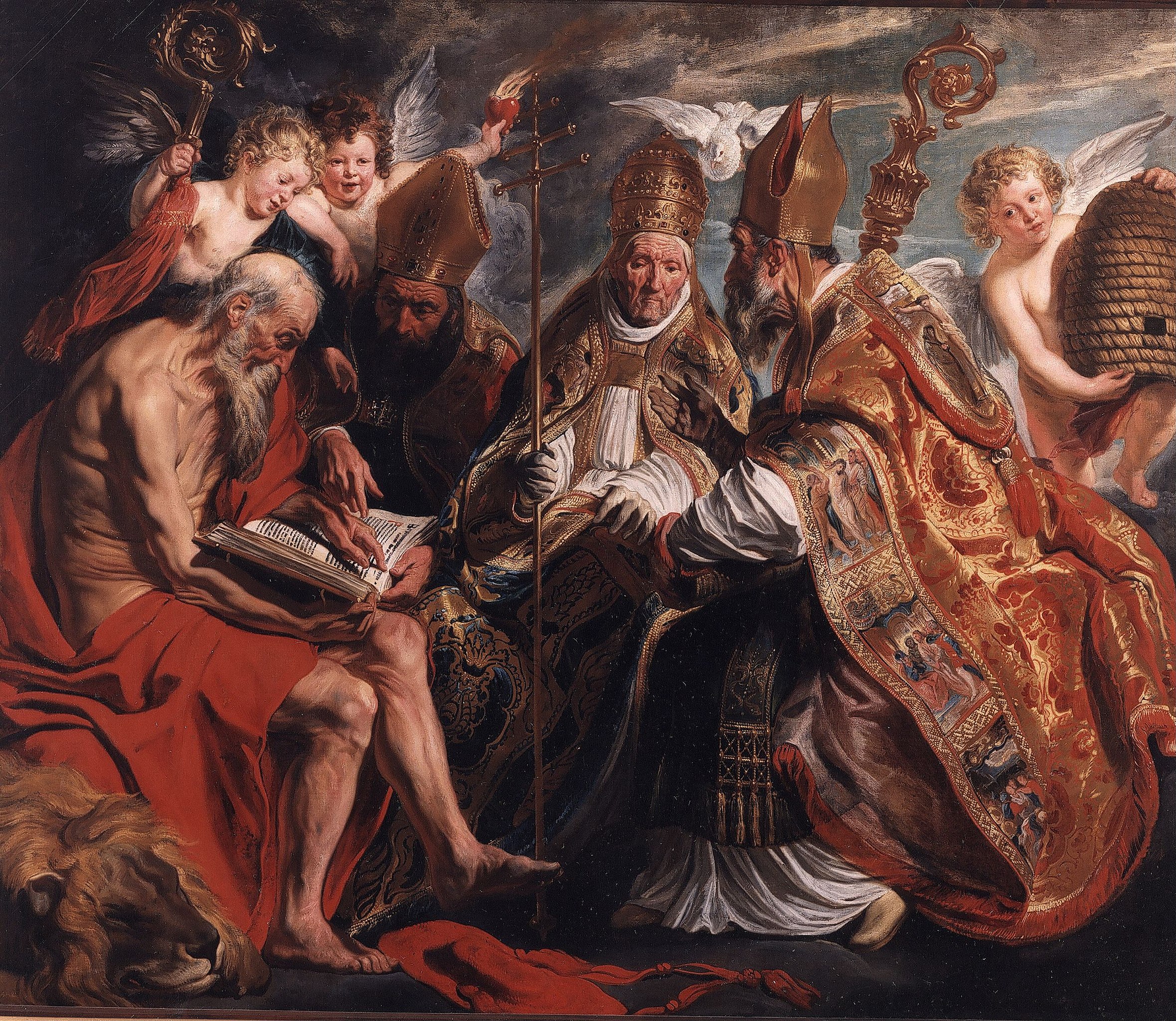
From a Catholic perspective, the Latin Fathers are early Christian writers who shaped the Church in the Western world through their Latin works, offering timeless theology and wisdom. This page explores their identity, contributions, and significance in Catholicism.
The Latin Fathers are Church Fathers who wrote in Latin, primarily from the 2nd to 8th centuries, such as St. Augustine, St. Jerome, and St. Ambrose. They’re revered for their theological depth and influence in the Western Church (CCC 688).
They’re named for their use of Latin, the language of the Western Roman Empire and later the Church in the West. This sets them apart from the Greek Fathers, reflecting their regional and linguistic heritage (CCC 78).
They addressed doctrine, morality, and Scripture. St. Augustine wrote on grace and sin, St. Jerome translated the Bible (Vulgate), and St. Ambrose preached on virtues—shaping Catholic thought and practice (CCC 120).
They laid the intellectual foundation for Western Christianity. Their works on sacraments, salvation, and Church authority remain central to Catholic theology and catechesis (CCC 80).
They rooted their theology in Scripture. St. Jerome’s Vulgate made the Bible accessible, while St. Augustine’s Confessions reflect biblical themes of redemption, showing Tradition’s harmony with the Word (CCC 112).
Most, like St. Leo the Great and St. Gregory the Great, are saints, honored for their sanctity and orthodoxy. Some, like Tertullian (before his heresy), aren’t canonized, but their early writings still hold value (CCC 2030).
They clarified teachings on grace (Augustine), papal authority (Leo), and the sacraments (Ambrose). Their ideas shaped councils and the Church’s response to heresies like Pelagianism (CCC 88).
They confronted heresies, barbarian invasions, and moral decline. St. Augustine battled Manichaeism, while St. Jerome worked amid Rome’s fall, yet they upheld the faith (CCC 2474).
Their Latin works aligned with the West’s language and culture, making them more accessible than the Greek Fathers. The Roman Church’s growth amplified their influence (CCC 1203).
Catholics can read St. Augustine’s City of God, pray with St. Ambrose’s hymns, or study St. Jerome’s exegesis. Their insights deepen faith, morality, and devotion in modern life (CCC 1194).